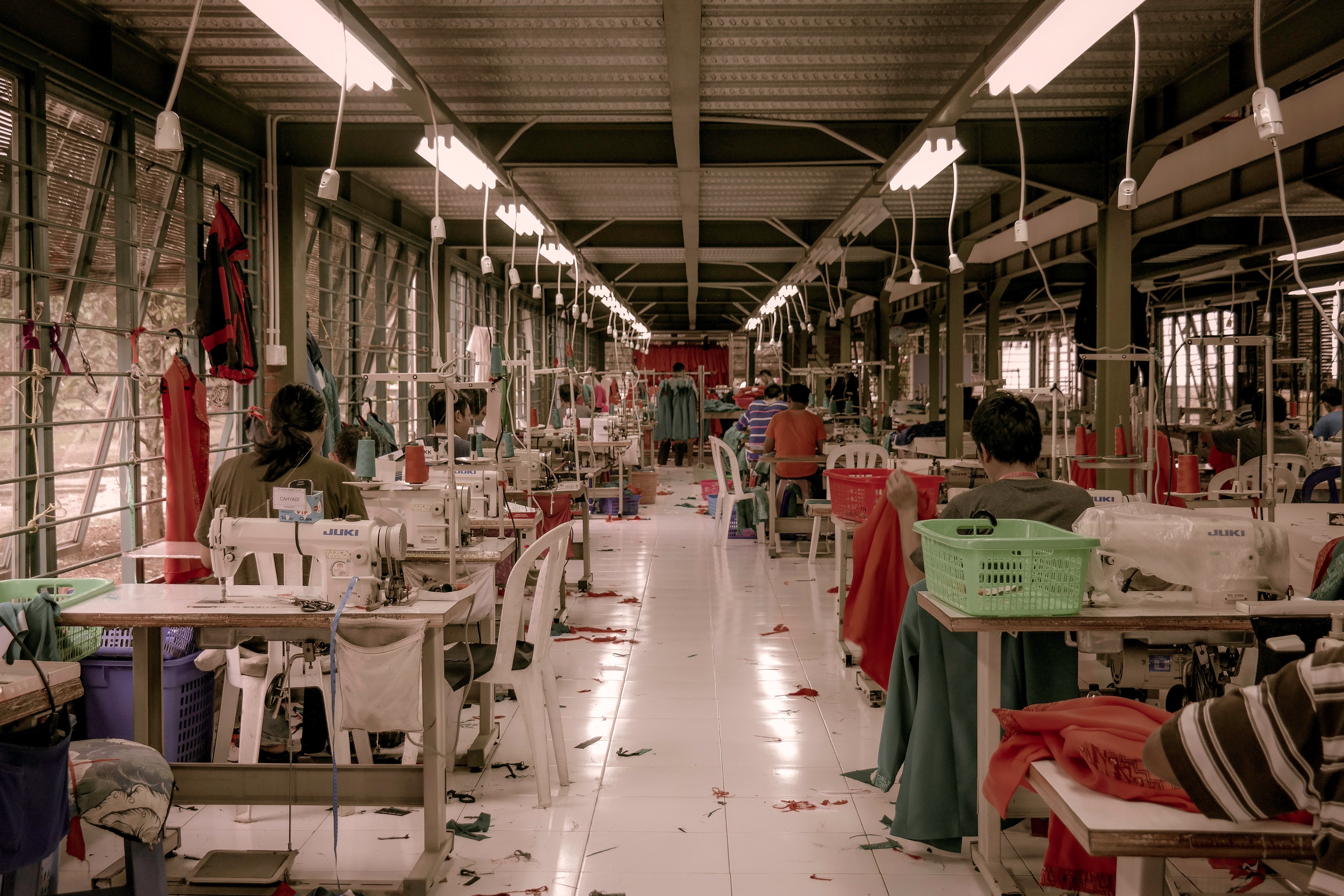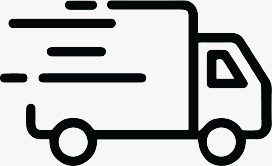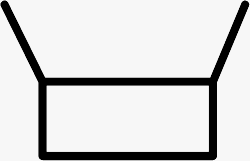Do you ever find yourself wonder, Is Madewell ethical, Is Everlane ethical, etc about your favorite fashion brands? Much like organic foods, sustainable fashion goods can have sustainable or ethical certifications to demonstrate their commitment to good environmental practices by ensuring they meet a certain set of standards. The extensive process of getting certified requires a series of third party tests that look to verify that sustainable practices have indeed been followed through in the production of a given good or service. While these certifications are not regulated (unlike in the case of foods), they are the closest we can get right now to guaranteeing authenticity of sustainable claims. Here are just a few of the existing sustainable certifications that exist to help validate the various sustainable and ethical initiatives that companies can take. Keep in mind these certifications can be quite costly, often a barrier to entry for smaller organizations:
MATERIAL CERTIFICATIONS
BCI Cotton
The BCI Better Cotton Standard System is a certification that stems from a holistic approach to sustainable cotton production which covers the following three pillars of sustainability: social, economic, and environmental. The BCI (Better Cotton Initiative) is one of the largest cotton sustainability programs in the world and partners with a diverse range of stakeholders including big names like The Children’s Place, Rituals, Carthart, and Levi’s. You can find more information on the BCI Cotton Certification, here.
Global Recycle Standard
This certification, developed by Control Union Certifications, sets the requirements for third-party certification of recycled content, both finished and intermediate. The purpose of the GRS is to verify the claims of companies towards good working conditions and the minimization of harmful environmental and chemical impacts. You can find more information on the Global Recycle Standard, here.
GOTS
The GOTS or Global Organic Textile Standard, is based on an on-site inspection and certification of the entire textile supply chain. GOTS offers two types of certification documents. The Scope Certificates (SCs) proves that a supplier meets all criteria to be allowed to use the GOTS logo and the Transaction Certificates (TCs) proves that the goods themselves meet all GOTS product criteria. Something quite unique about the GOTS certification is that the final product can only be certified if all stages of the textile supply chain comply with the GOTS criteria. You can find more information on GOTS, here.
NSF Global Traceable Down Standard
This first certification is specific to down as it relates to apparel, household, and commercial products. The NSF Global Traceable Down Standard certifies that the down comes from a responsible and sustainable source that respects animal welfare and has full traceability. This standard is vetted through industry experts including down suppliers, traceability experts, and animal welfare organizations. Patagonia, an outdoor clothing company that is notable in the sustainability space, is just one example of a brand that has adopted this certification in all of the virgin down that they source. You can find more information on the NSF Global Traceable Down Standard, here.
OEKO-TEX®
The OEKO-TEX® certification(s) consists of a wide range of standardized guidelines as they relate to the development of high-quality textile and leather products at all stages of the value-creation chain. The following standards are what OEKO-TEX® currently offers: product labels according to STANDARD 100 by OEKO-TEX®, MADE IN GREEN by OEKO-TEX® and LEATHER STANDARD by OEKO-TEX®, production facility certification according to STeP by OEKO-TEX® (Sustainable Textile & Leather Production), chemicals certification according to ECO PASSPORT by OEKO-TEX®, and finally status report according to DETOX TO ZERO by OEKO-TEX®. In order to uphold these standards, OEKO-TEX® has amasseed 18 independent research institutes in the field of textile and leather ecology from the likes of Europe and Japan in order to test the developments of such standards. You can find more information on OEKO-TEX®, here.
Organic Content Standard
The Textile Exchange's Organic Content Standard is a certification that authenticates all organic product claims that are made by a company. As a resource, the Textile Exchange provides companies with tools to help ensure that the integrity and identity of their input materials are upheld as it becomes the final product. Members of the Textile Exchange include companies such as Adidas, Allbirds, and Arcteryx, just to name a few. You can find more information on the Organic Content Standard, here.
Responsible Wool Standard
Like the OCS (Organic Cotton Standard), the Responsible Wool Standard Certification is a certification under the global nonprofit, The Textile Exchange. The RWS Certification, as stated in its name, is specifically focused on the use of wool and the goal to ensure that wool comes from farms that have a progressive approach to managing their land, practice holistic respect for animal welfare of the sheep and respect the Five Freedoms of animal welfare. You can find more information and tools for farmers, supply chain, and brands & retailers, here.
MANUFACTURER CERTIFICATIONS
Bluesign® Technologies
Companies that meet the bluesign® criteria are among the industry innovators that are using the best technologies possible to support their production. The bluesign® certification ensures that affiliated companies and brands are manufacturing with responsible use of resources and that have the lowest possible impact on the environment. With over 600+ partners, Patagonia being one of their first system partners, bluesign® technologies are paving the way to ensure that increasingly less hazardous materials and chemicals are being released into the environment. You can find more information on bluesign® Technologies, here.
Fair Trade Certified
The Fair Trade Certification™ is among the most common ethical fashion certifications you’ll find on the market today. This certification ensures that producers have access to better wages and safer working conditions. Additionally, the money made with every sale of such fair trade products is used to fund important community development projects. Among the brands selling fair-trade styles are Madewell, J.Crew, Athleta, and Patagonia. You can find more information on Fair Trade Certified™, here.
Leather Working Group
The Leather Working Group is the largest non-profit membership organization responsible for the world’s premier leather manufacturing certification. The LWG membership has a very specific audit protocol for brands and companies to reach a rating of either Gold, Silver, Bronze, or Audited. Their main goal is to improve the environmental impact of the leather industry and to help leather manufacturers achieve certification through their membership program. You can find more information on the Leather Working Group, here.
SEDEX
The SEDEX Certification is focused on improving the working conditions in global supply chains. As the world’s leading online platform for managing supply chains, they work with over 60,000 businesses in over 150 countries and the full list of their member directory can be found on their website. Some resources that SEDEX is proud to present to its members include supply chain transparency, risk assessment, reporting, consulting, and training. You can find more information on SEDEX, here.
BRAND CERTIFICATIONS
B CORP
Among the most highly coveted sustainable certifications, you’ll find out there is the B Corporation Certification. Holding a B Corp Certification means you are legally required to consider the impact of your company’s decisions on your workers, customers, suppliers, community, and the environment. Not to mention that the B Corp Certification is the only certification that measures a company’s entire social and environmental responsibility- not just the integrity of a company’s service or products. Among the multitude of reasons why a company might want to certify with a B Corp Certification, the most significant include the potential to attract talent, improve their impact, build new relationships, and finally protect their mission statements. You can find more information on the B Corp Certification, here.
Sustainable Apparel Coalition
You’ve most likely heard of the SAC (Sustainable Apparel Coalition) as it is widely referenced among leading companies and organizations in the industry. The SAC is not a certification but instead it is the textile industry’s leading alliance for sustainable production, amassing a noteworthy number of members including the likes of Eileen Fisher, Levi’s, Nike, and various others. The SAC also provides a lot of helpful tools for all industry participants including the acclaimed Higg Index, which delivers a suite of tools that standardizes value chain sustainability measurement for industry producers. They’ve also put out a multitude of reports including one about rebuilding a more sustainable fashion industry after COVID-19 and various other subjects. You can find more information on the Sustainable Apparel Coalition, here.







Leave a comment